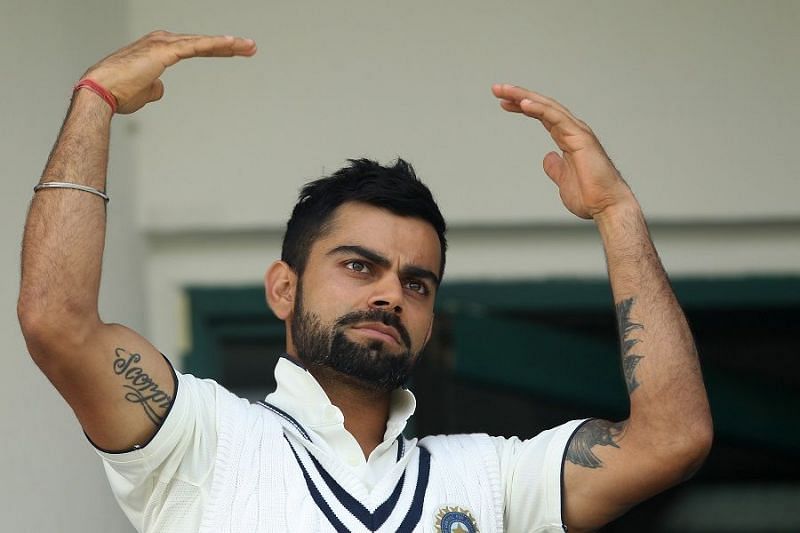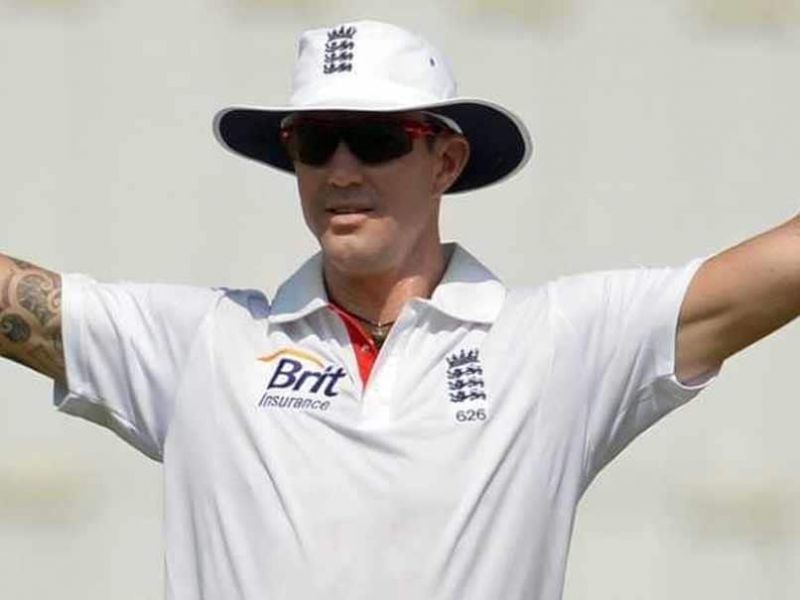
3rd Innings Declarations : A bit too safe, a bit too bold
Earlier this week, India made an awe-inspiring comeback, keeping the five match series alive, trailing 1-2. At tea on Day 3 with the lead inching towards 450 and a clear sight of victory, India were expected to add a quick-fire 50 runs before inviting the Englishmen to battle out around 15-20 overs with an unassailable lead of 500.
But Rahane looked to bide his time, with no intent of shifting gears (finishing 29 off 94 balls) which might have been cued by the team management and India left 9 overs for the openers to survive before stumps.
Although, it didn't seem to have an impact on the game as the Indian bowlers wrapped up the match early on Day 5, sealing a much coveted victory, but it did raise a few eyebrows if not spark discussions.

Virat Kohli
Declarations can be sometimes one of the trickiest decisions a captain needs to take in a Test match(though the team management helps) because it can significantly alter the course of the game.
Though declaration is just about striking the perfect balance between the number of overs remaining to bowl the opposition out and the total on the board for the opposition to win, a perfect declaration can exist only in hindsight because of the unpredictable nature of the game.
There are many factors which come into play(Whether the bowlers are rested enough? What is the weather forecast like? Is it a must-win or a must-not-lose game? How is the pitch going to play?)
One interesting case was the 1st test of India’s SA tour of 2013 at Johannesburg, when India had set a target of 458 in 136 overs for the home side. What turned out to be one of the most exciting draws of the game, with a brilliant 205 run partnership between de Villiers and du Plessis, saw the home side coming within touching distance of a record breaking chase. But with 16 to get off the last 2 overs and 3 wickets to spare, SA opted for a draw, finishing at 450/7.
Declaring for a win at the cost of a loss?

Generally, the Indian captains have adopted the safety first approach with declarations but that doesn’t deserve reasonable criticism as there have been numerous instances in the history of Test cricket of a declaration gone awry.
It might sound surprising but there have been countably enough, 13 instances in the history of the game when teams have lost after declaring the 3rd innings with England leading at four such losses followed by West Indies with three. Thus, it is not surprising that the traditional approach to declaration is still very much prevalent, even when the limited overs cricket has seen a world of change.
Declaration is a double-edged sword which not all teams like flirting with. Cricket being a game of unpredictabilities and where individual contribution can significantly alter the course of game, a bold declaration isn’t far from synonymous with a gamble, specially when the opposition has potential match winners.
Declaring the Michael Clarke way
Talking of bold declarations, the Australian captains have been at the fore-front, especially Michael Clarke. With the aggressive brand of cricket that the Australians play, only a win seems to satiate them.
In a rain affected game against WI at Kensington Oval in 2012, Michael Clarke decided to declare the 1st innings while still trailing by 43 and eventually leading his team to a win in what will remain as one of the most innovative declarations. But as said earlier, a bold declaration can easily backfire.
The same captain, seeking a result desperately in the 2013 Ashes in England having already lost 0-3, again on a rain affected game, decided to leave the hosts with 44 overs to chase 227, their bowlers with a slim chance and the spectators with a thrilling last session. What eventually turned to be a draw with England within touching distance of a win when bad light stopped play, could have been a nightmare for Clarke.
There is a popular belief in psychology that the pain of losing something is greater than the joy of gaining something which explains the contentment of teams with a Draw on most occasions. But it also depends largely on the state of the series. For a team trailing in a series, it would be desperate for a win but in other cases, a Draw is a perfectly legitimate result.
Can India create history in England?
In the remainder of the ongoing India-Eng series, it will be expected of Virat Kohli to ‘play bold’ with declarations as well and also leverage the limited overs batting prowess of the team, if such a situation arises.
With two matches remaining in the series, India would be looking to create history however slim the chances might be. "We definitely believe we can come back from 0-2 to 3-2 if we keep performing the way we have done in this Test", an inspired Kohli said after winning the 3rd Test at Trent Bridge.